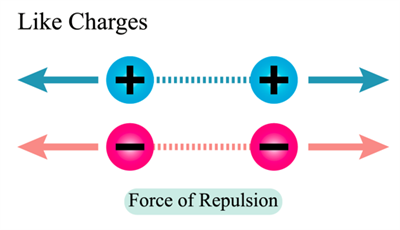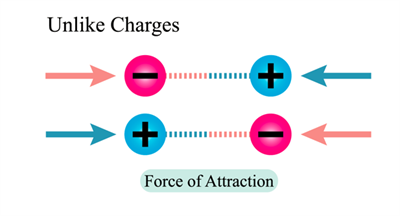PDF chapter test TRY NOW
Charges or electric charges are the fundamental property of a matter that causes objects to attract or repel each other. Subatomic particles like protons and electrons carry charges. The law of conservation of energy says the "energy can neither be created nor be destroyed. But, it can be transformed from one form to another". Likewise, charges can neither be created nor be destroyed, but they can be transferred from one system to another.
There are two types of charges:
- Positive charge
- Negative charge
Protons carry a positive charge, and electrons carry a negative charge.
There is a force of attraction or repulsion between the charges. Depending upon the interaction of charges, we have two properties.
- Unlike charges attract each other.
- Like charges repel each other.

Like charges repel each other

Unlike charges attract each other
A small amount of charge that can exist freely is called the elementary charge (e). The value of the charge is . This is the amount of charge possessed by each proton and electron. But, protons have a positive elementary charge (+e), and electrons have a negative elementary charge (-e). Since the electrons and protons are equal in number, an atom is electrically neutral.
